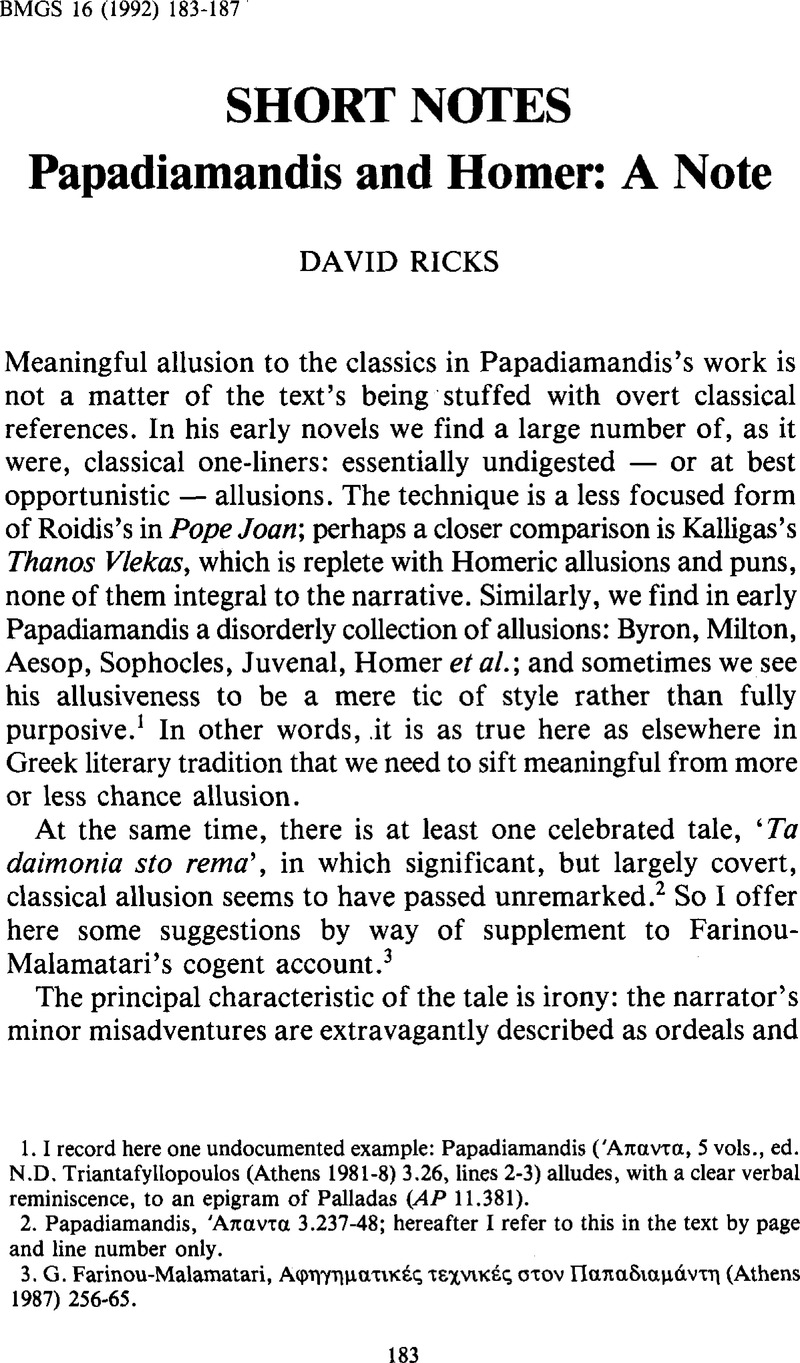No CrossRef data available.
Article contents
Papadiamandis and Homer: A Note
Published online by Cambridge University Press: 22 January 2016
Abstract

- Type
- Short Notes
- Information
- Copyright
- Copyright © The Centre for Byzantine, Ottoman and Modern Greek Studies, University of Birmingham 1992
References
1. I record here one undocumented example: Papadiamandis (![]() 5 vols., ed. N.D. Triantafyllopoulos (Athens 1981-8) 3.26, lines 2-3) alludes, with a clear verbal reminiscence, to an epigram of Palladas (AP 11.381).
5 vols., ed. N.D. Triantafyllopoulos (Athens 1981-8) 3.26, lines 2-3) alludes, with a clear verbal reminiscence, to an epigram of Palladas (AP 11.381).
2. Papadiamandis, ![]() 3.237-48; hereafter I refer to this in the text by page and line number only.
3.237-48; hereafter I refer to this in the text by page and line number only.
3.
Farinou-Malamatari, G., ![]() (Athens
1987) 256–65
Google Scholar.
(Athens
1987) 256–65
Google Scholar.
4. Robinson, C., Lucian and his Influence in Europe (London 1979) 26 Google Scholar.
5. Either Papadiamandis or his typesetter (or both) has mangled the quotation, which should read ![]()
6. Peter Mackridge documents this persuasively in his edition of the novel (Athens 1982); see especially pp. λθ′-μβ and nn. 12-13 on p. πη One further Homeric reference deserves mention: on p. 77, Loizos says to Michalis: ![]()
![]() Though not a quotation from Alexandros Pallis’s translation of the Iliad (like the one on p. 32), it is in the same idiom, and seems to echo the famous words of Achilles to Lycaon at Iliad 21.106-7.
Though not a quotation from Alexandros Pallis’s translation of the Iliad (like the one on p. 32), it is in the same idiom, and seems to echo the famous words of Achilles to Lycaon at Iliad 21.106-7.
7. Two poetic treatments of the Homeric heroes as shaping a boy’s imagination deserve mention here for comparison: Browning’s, poem ‘Development’ (The Poems, 2 vols., ed. Pettigrew, J. and Collins, T.J. (Harmondsworth 1981) 918–21 Google Scholar) and Robinson’s, Edwin Arlington ‘Isaac and Archibald’ (Collected Poems (New York 1930) 169–81 Google Scholar).


